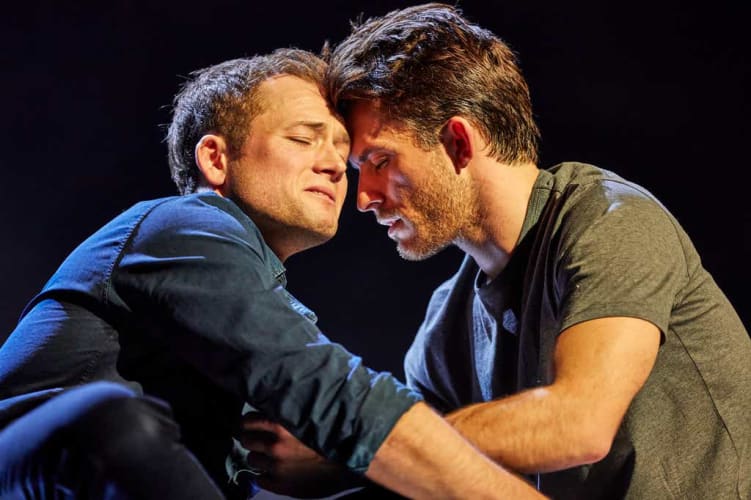As this column has highlighted quite regularly over the last few months, the theatre industry is in a state of flux with crisis a distinct possibility.
We have all become increasingly aware of the general cost of living crisis thanks to the concentration of the media, which loves nothing better than a disaster story, not to mention our own personal experiences. However, matters really are getting serious and theatres will suffer more than most. That is because, to varying degrees, costs come from four sources, all of which are seeing worse than average inflation rates. Worst of all is energy, where theatres may well find that they are paying at least twice as much by the end of the year as they were last autumn.
In that most people working in the industry earn far below average wages, if they are not self-employed, they will literally be struggling to survive and keep their homes, meaning that most will require significant pay rises.
For touring companies, increasing fuel costs will be a nightmare, while many at fixed venues make significant proportions of their profits through the sales of food and drink and those costs have been spiralling too.
That brings us to the other end of the equation. Ignoring the opportunity to push up prices for catering, the only other sources of income for theatres are various types of funding and ticket sales. The Arts Council and local authorities will be cutting budgets like everyone else including many formerly rich corporate, where sponsorship is one of the easier outgoings to reduce or eliminate.
So that brings us back to the title of this article: How much would you pay for a theatre ticket?
The answer may have changed significantly as a result of the economic squeeze. Many people who would happily have made regular visits to theatres in the past, accepting ticket prices as reasonable, could now be in a position where they need to tighten belts. Once again, discretionary spending on theatre trips could be the first thing to go, either completely or by any reduction in the number of visits.
The wealthy have never had a problem. When they heard that they could pay $850 to see Springsteen on Broadway, they fought each other for the privilege. London is also beginning to get the hang of premium and dynamic ticket pricing, with hearsay that Cabaret tickets were costing up to £250 each but comfortably being beaten by Cock, which was attempting to fleece customers of £400. In each of these cases, if you happen to have a loved one, the cost will automatically double.
Another change is the disappearance of tourists from the UK. Typically, overseas visitors were more likely to pay top dollar than anybody else.
By the time you add in transport plus the cost of a meal and a few drinks, there isn’t going to much change out of £1,000 if you’re that desperate to see your favourite TV or film star in the Mike Bartlett revival. Is this sustainable? Almost certainly not—the whole point of dynamic ticket pricing is that if nobody is willing to pay say £250, then you keep reducing the price until the ticket sells.
The New York model is pretty stark. Unless a show is incredibly popular, it is likely that a significant proportion, and possibly even the majority of tickets, will be sold via an agency that deliberately undercuts the face value of any ticket, undermining the experience at the same time, since you frequently have to pick up your tickets from someone who looks remarkably like a ticket tout or spiv hanging around outside the venue.
All of this means that the market has changed completely. Now, there is every incentive to leave the decision until the last minute, especially with COVID cancellations still on the horizon. On that basis, people can often get real bargains, although they may miss out on a particular performance completely.
We will all have our own internal mental calculator which says that a ticket for a show has a certain value. Many of us might have been shocked when the price of a West End ticket passed £50. Eventually, we become acclimatised to that but might find £75 or £100 to be beyond the pale.
This is where bargain deals are so attractive. The National Theatre has been a beacon with what were originally sponsored £10 tickets still offering the opportunity of a great night out for a mere £20, although it is notable that top price tickets are now not far short of £90, a big difference from before the pandemic.
The same considerations apply to prospective theatregoers heading for the regions or the fringe. Some will be unable to afford more than £15 or £20 for an occasional night out, eating at home and avoiding drinks and programmes, even though the better-off will still have plenty of disposable income.
Yet again, this is likely to lead to conservative programming and a lack of diversity both on and off stage, as those at the bottom of the economic pile find it hardest to afford the great pleasure that they will derive from a night at the theatre.
A final factor that may or may not play into these considerations is the opportunity to watch performances online. The experience is completely different but a whole family can enjoy a show for the price of one drink each had they actually visited the theatre, never mind the cost of the travel and tickets.
Where is this all going to lead? Who knows?
